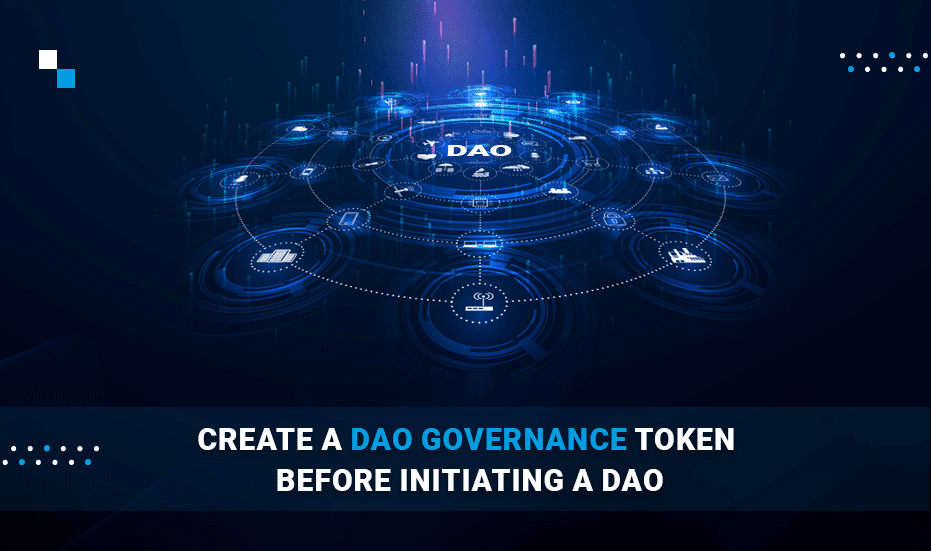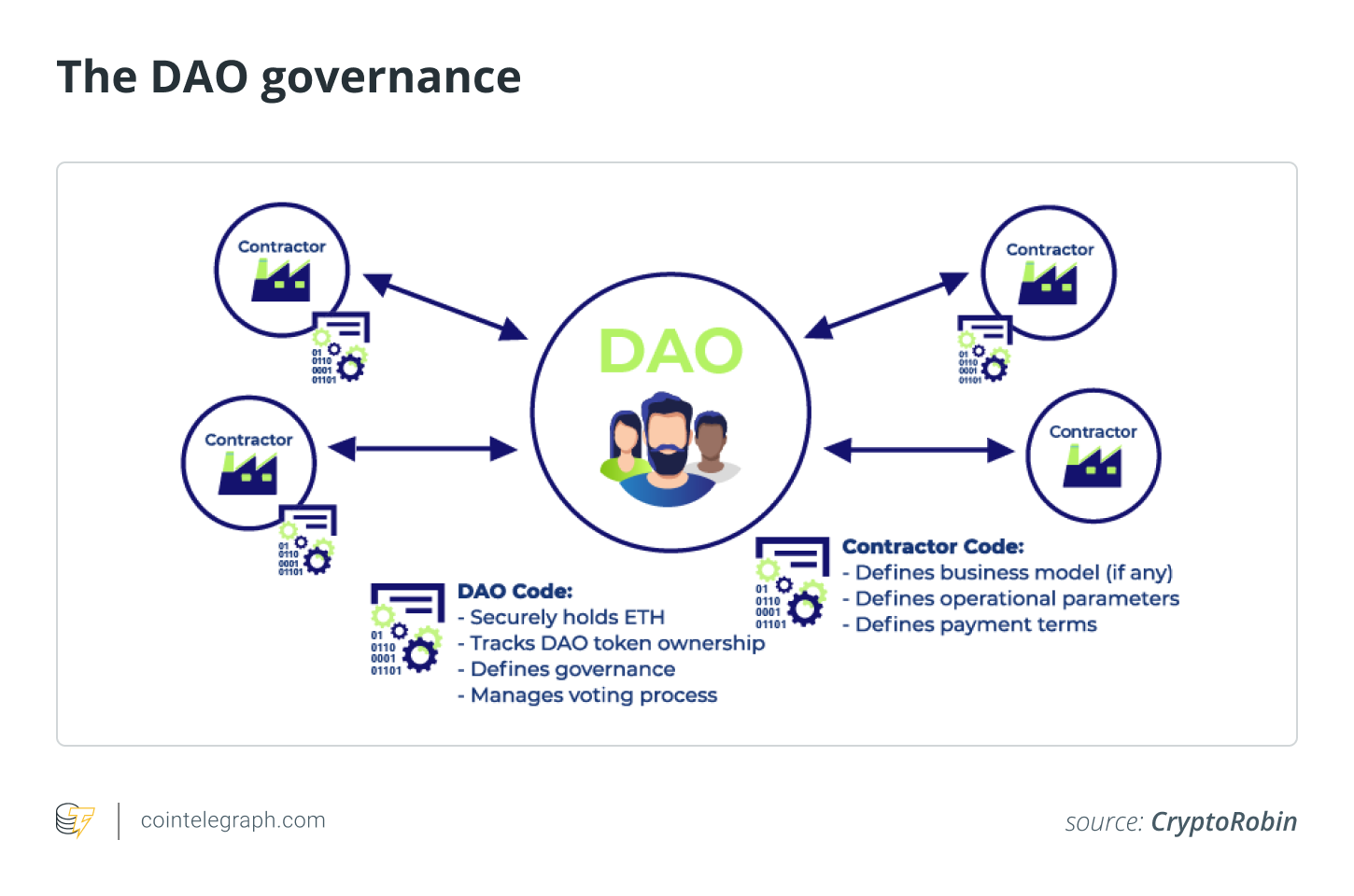Decentralized Autonomous Organizations (DAOs) have been gaining attention in recent years for their potential to revolutionize governance and decision-making processes. In this blog post, we will explore the role of DAOs in governance and decision-making, from their introduction and benefits to the challenges of implementing them and successful case studies.
First, we will provide an introduction to DAOs in governance, explaining how these organizations operate on a decentralized and transparent platform, allowing for collective decision-making and resource allocation. Next, we will delve into the benefits of using DAOs in decision-making, such as increased efficiency, transparency, and reduced likelihood of manipulation or corruption. However, we will also discuss the challenges of implementing DAOs in governance, including potential security vulnerabilities and the need for clear governance structures.
Furthermore, we will examine successful case studies of DAOs in decision-making to illustrate their real-world impact and potential. Lastly, we will explore future trends and opportunities for DAOs in governance, considering their potential to shape the future of organizational decision-making processes. Join us as we delve into this exciting topic and discover the potential of DAOs in governance and decision-making.
Introduction to DAOs in Governance
Decentralized Autonomous Organizations (DAOs) are a relatively new concept in the field of governance, revolutionizing the way decisions are made and implemented. DAOs are essentially organizations that are run and managed by smart contracts on a blockchain. This means that decision-making processes are automated and executed without the need for a central authority or middlemen. The principles of transparency, trust, and efficiency are at the core of DAOs, making them an intriguing alternative to traditional governance structures.
One of the key features of DAOs is their ability to provide a decentralized and democratic approach to decision-making. Through the use of blockchain technology, DAOs enable a peer-to-peer network of participants to collectively contribute to the governance and decision-making processes. This opens up opportunities for individuals to have a direct impact on the direction and policies of an organization, without the limitations and biases that may exist in traditional governance structures.
Furthermore, DAOs have the potential to significantly reduce the barriers to participation in decision-making processes. By leveraging blockchain technology, DAOs can create a more inclusive and accessible platform for individuals to contribute their ideas and opinions. This can lead to a more diverse range of perspectives being considered in the decision-making process, ultimately resulting in more comprehensive and informed outcomes.
Overall, the concept of DAOs in governance represents a paradigm shift in the way organizations can be structured and managed. By embracing decentralization, automation, and transparency, DAOs offer a compelling alternative to traditional governance models, with the potential to empower individuals and promote a more democratic approach to decision-making.
Benefits of DAOs in Decision-Making
Benefits of DAOs in Decision-Making
Decentralized Autonomous Organizations (DAOs) are gaining traction in the realm of decision-making, and for good reason. One of the major benefits of DAOs in decision-making is the elimination of the need for intermediaries. This means that stakeholders have a direct say in the decision-making process, without having to rely on third parties to represent their interests.
Furthermore, DAOs can lead to increased transparency and accountability. Since the decision-making process is decentralized and transparent, it becomes easier to track and verify the outcomes of each decision. This can help to build trust among stakeholders and ensure that decisions are made with the best interest of the organization in mind.
Another benefit of DAOs in decision-making is the potential for increased efficiency. With traditional decision-making processes, there may be delays and inefficiencies due to the involvement of multiple intermediaries. However, with DAOs, decisions can be made more swiftly and with greater agility, as stakeholders have a direct and immediate voice in the process.
Lastly, DAOs can also empower individuals who may not have had a voice in decision-making processes before. By allowing stakeholders to participate directly in decision-making, DAOs can give a voice to marginalized groups and ensure that their perspectives are taken into account.
Challenges of Implementing DAOs in Governance
Decentralized Autonomous Organizations (DAOs) have gained popularity in recent years as a new way of governing and decision-making. However, implementing DAOs in traditional governance structures comes with its own set of challenges. One of the major challenges is the lack of regulatory framework and legal clarity surrounding DAOs. As DAOs operate on blockchain technology, it becomes difficult to determine the legal status of these organizations and their interactions with traditional institutions.
Another challenge is the issue of governance and decision-making. In a traditional setting, decisions are made by elected representatives or members of a governing body. In a DAO, decisions are made through code and smart contracts, leading to potential conflicts and lack of accountability. This shift in decision-making process requires a complete overhaul of existing governance structures and poses a challenge in ensuring transparency and fairness.
Security and technical vulnerabilities are also major challenges in implementing DAOs in governance. As DAOs operate on blockchain, they are susceptible to hacks, bugs, and technical failures. This poses a risk to the assets and resources managed by the DAO, raising concerns about the reliability and security of these organizations.
Lastly, one of the biggest challenges in implementing DAOs in governance is the resistance from traditional institutions and stakeholders. The concept of decentralized governance threatens the existing power structures and poses a challenge in gaining acceptance and cooperation from established authorities and organizations.
Case Studies: Successful DAOs in Decision-Making
Decentralized Autonomous Organizations, or DAOs, have been increasingly gaining attention for their potential in decision-making processes. Many have been skeptical about their effectiveness, but there are several successful case studies that demonstrate the impact of DAOs in governance. These case studies provide valuable insights into how DAOs can be utilized to facilitate decision-making in various industries and sectors.
One notable case study is the successful implementation of a DAO in a large tech company. The company utilized a DAO to allow employees to vote on important decisions, such as project priorities and budget allocations. This resulted in a more democratic and transparent decision-making process, ultimately leading to higher employee satisfaction and better project outcomes.
Another case study involves the use of a DAO in a non-profit organization. By leveraging a decentralized decision-making model, the organization was able to involve a broader range of stakeholders in the decision-making process, resulting in more diverse perspectives and innovative solutions. This ultimately led to greater community engagement and impact.
Additionally, a case study in the finance industry demonstrated the successful implementation of a DAO to make investment decisions. By leveraging the collective knowledge and expertise of its members, the DAO was able to make informed investment choices, resulting in higher returns and minimized risk.
Future Trends and Opportunities for DAOs in Governance
As the world of governance continues to evolve, there are a number of future trends and opportunities that are emerging for DAOs (Decentralized Autonomous Organizations). One of the most significant trends is the increasing integration of blockchain technology into governance processes. Blockchain provides a secure and transparent way of recording transactions and establishing trust, which can be invaluable for governance systems. As more organizations and governments adopt blockchain technology, the potential for DAOs to play a key role in decision-making and governance will only continue to grow.
Another future trend for DAOs in governance is the expansion of their use beyond just financial and business applications. While many early DAOs were focused on managing cryptocurrency assets, there is a growing interest in using this model for other types of decision-making and governance. For example, DAOs could be used to manage community funds, prioritize infrastructure projects, or even make decisions in political processes. As the scope of DAO applications expands, the opportunities for their use in governance will also grow.
One significant opportunity for DAOs in governance is the potential to increase transparency and accountability. By operating on a decentralized and transparent platform, DAOs can help to combat corruption and improve trust in decision-making processes. This could be particularly valuable in regions or organizations where traditional governance structures have struggled to maintain public trust. By embracing DAOs, these entities can signal their commitment to fair and transparent decision-making.
Looking ahead, it’s clear that DAOs have the potential to revolutionize the way governance functions on a global scale. Whether through the integration of blockchain technology, the expansion of DAO applications, or the increase in transparency and accountability, the opportunities for DAOs in governance are numerous and far-reaching. As the technology and use cases continue to develop, the future for DAOs in governance looks increasingly promising.
Frequently Asked Questions
What are DAOs and how do they relate to governance?
DAOs, or Decentralized Autonomous Organizations, are entities that operate without centralized control. They use smart contracts and blockchain technology to automate decision-making and governance processes, allowing for more transparent and efficient governance.
What are some benefits of using DAOs in decision-making?
Some benefits of using DAOs in decision-making include increased transparency, reduced bureaucracy, and the ability to include a wider range of stakeholders in the decision-making process. DAOs also have the potential to lower operational costs and increase trust in the decision-making process.
What are the challenges of implementing DAOs in governance?
Challenges of implementing DAOs in governance include regulatory uncertainty, potential security vulnerabilities, and the need for technical expertise. Additionally, DAOs may struggle with scalability and effectively managing conflicts of interest among stakeholders.
Can you provide examples of successful DAOs in decision-making?
Yes, some examples of successful DAOs in decision-making include Aragon, a platform for creating and managing decentralized organizations; and MakerDAO, a decentralized lending platform. These DAOs have demonstrated the potential for effective and transparent decision-making processes.
What are the future trends and opportunities for DAOs in governance?
The future trends and opportunities for DAOs in governance include the potential for DAOs to revolutionize the way organizations are structured and governed. Additionally, DAOs may play a significant role in improving democratic decision-making and addressing issues related to trust and accountability.
How do DAOs impact traditional governance structures?
DAOs have the potential to disrupt traditional governance structures by introducing new models of decision-making and governance that are more decentralized and transparent. This could lead to a shift in power dynamics and a reimagining of how organizations and communities are governed.
What are some key considerations for organizations looking to implement DAOs in governance?
Some key considerations for organizations looking to implement DAOs in governance include understanding the legal and regulatory landscape, identifying the right use cases for DAOs, and ensuring adequate security and governance mechanisms are in place. It is also important to consider the potential impact on stakeholder relationships and the organization’s culture.






